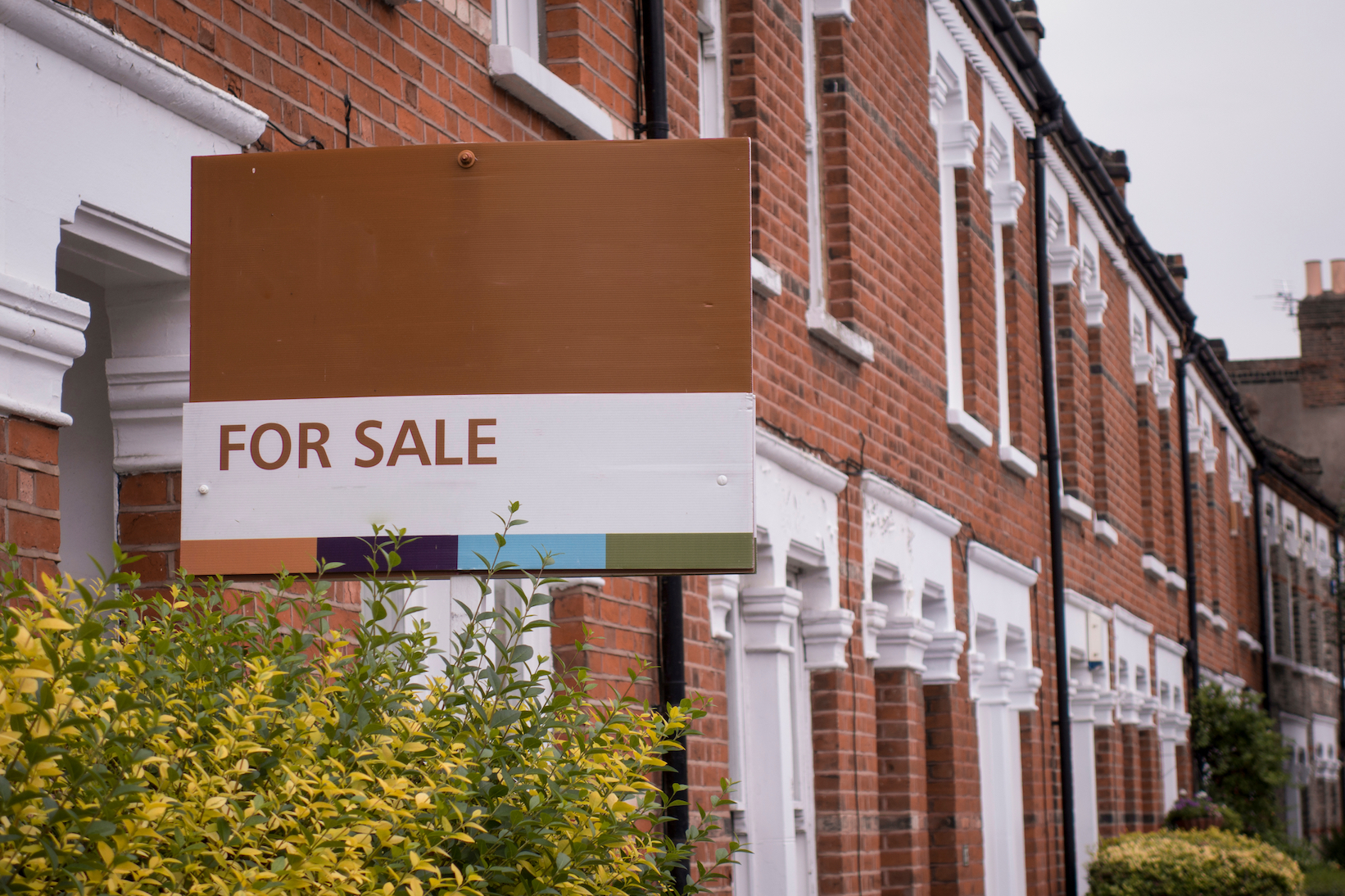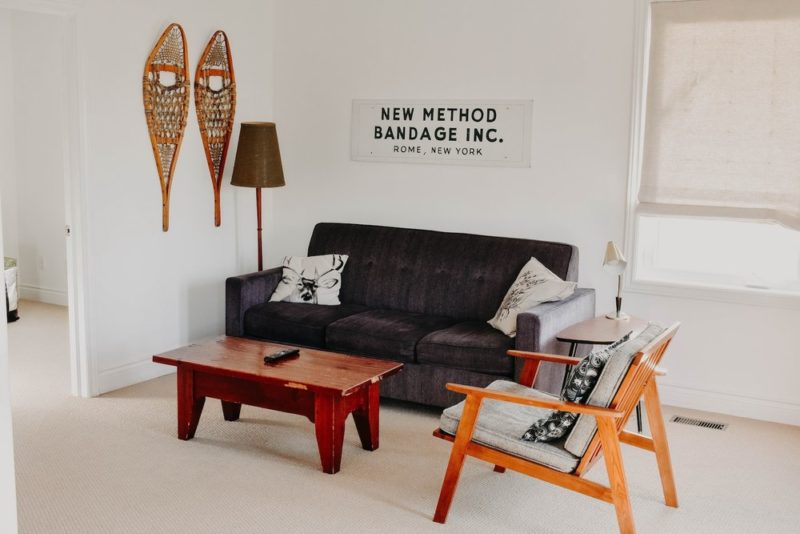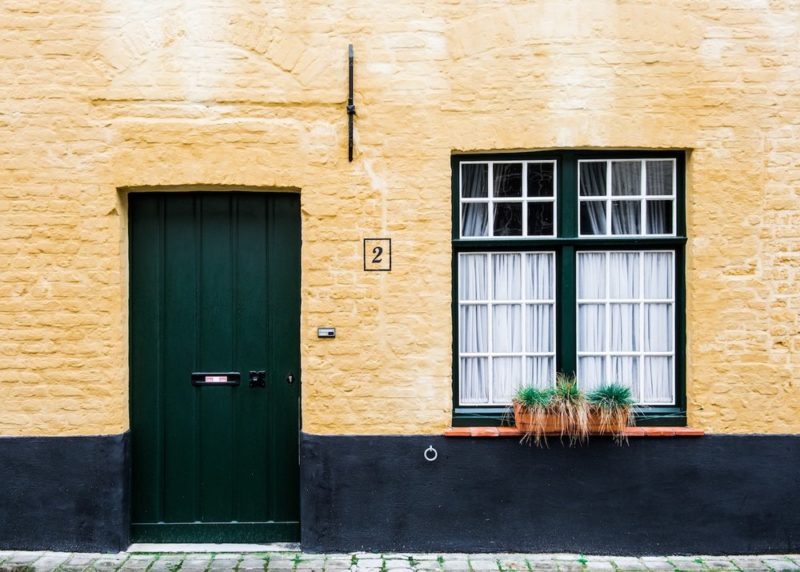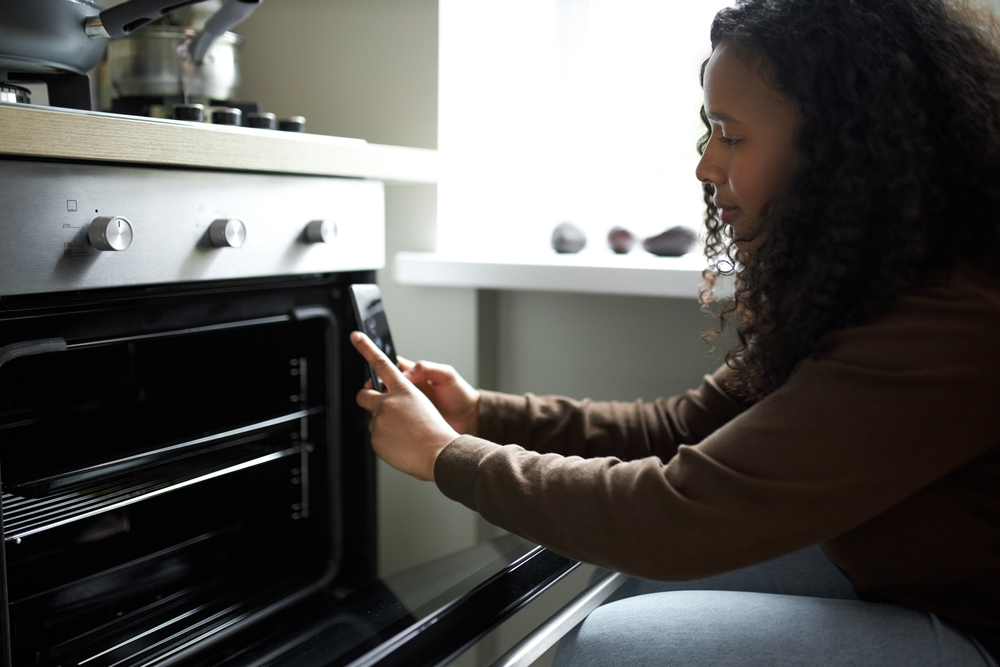The Ultimate Home Seller Checklist

Moving soon? Get organized with our free moving checklist.
We know how stressful selling a home can be, but it doesn’t have to be confusing. This home seller checklist will keep you on track and ahead of the game. From hiring an agent to closing day, we’ve got you covered. There’s plenty to do so, let’s get jump into your home seller checklist!
Home Seller Checklist: Before You List
You might be tempted to list your home right away, but there’s a lot to check off your home seller checklist before your home even hits the market. To ensure you get the best price for your home, take care of these items before advertising your home.
Hire the right people
Selling a home is no small feat. With everything on your home seller checklist, finding the time to market, repair, and stage your home might be too much. We recommend hiring a real estate agent to help you sell your home and to give you insight into the market.
Depending on the state and region you live in, you may be required to hire a real estate lawyer. Even if your state doesn’t require it, hiring a real estate attorney is highly recommended. Various states have a maze of laws and regulations, and you’ll be happy to have a knowledgeable attorney on your side, protecting you throughout the selling process.
If you decide not to hire an agent and opt to sell the home yourself, absolutely hire a real estate lawyer. We cannot stress this enough. Even if you have a legal background, hiring a lawyer will give you a degree of separation from a potentially emotional experience. This is one of the largest sales of your life. With a real estate attorney, you’ll be sure to have representation with high ethical standards to help guide you and negotiate through the process.
If you decide to hire a real estate agent, do your research. You’re going to be working closely with this person so trusting their expertise is crucial. Ideally, you’re looking for an agent with a proven success rate selling homes in your neighborhood. Here are the most important questions to ask when interviewing your potential agent:
- How long have you been in business?
- Is your license in good standing?
- Is this your full-time job?
- What is your average list-to-sales-price ratio?
- What is your marketing strategy for my home? Will you offer virtual tours to prospective buyers?
- Which neighborhood do you usually work in?
- How many homes have you closed in my neighborhood?
- Do you tend to represent more buyers or sellers?
- Can you provide references?
- Can you ensure I will be able to review all documents prior to signing?
- What is your fee?
- What separates you from the competition?

Understand your home’s worth
Before jumping into an appraisal and slapping a price on your home, conduct your own comparative marketing analysis (CMA) to discover your home’s value. Research the local housing market to see what similar homes in the area are selling for. Websites such as Redfin are helpful for estimating the market value of homes that aren’t even on the market and for viewing the list prices of those that are.
Scope out the competition
Comparing your home to others is just one part of calculating your home’s value. You can splurge for an appraisal if your house is very unique (think built by hand, or a log cabin) or if you’re emotionally attached to your home. Otherwise, working with your agent and doing a little research will give you the information you need to price your home appropriately.
When assessing the competition, keep in mind the details about your home including: age, square footage, amenities, upgrades, and the number of bedrooms and bathrooms. This way you’ll compare apples to apples.
Consider the location and condition of your home
When calculating the worth of your home, take an honest look at its condition. Consider the improvements necessary to ensure your home is up to code and you’ve obtained the required permits and/or certificates. Does it need a new roof? Are there damp spots on the ceiling? These decrease your home’s value. Also consider its location. Homes in neighborhoods with excellent school systems, lively communities, or thriving economies, for example, are priced higher than homes in other areas.
Calculate your home equity
Home equity is the current market value of your home, minus what you owe. Since it can help you buy your next home, this is one task on your home seller checklist you’ll want to check off early. Gains in equity come from increases in market value, improvement projects, and by paying down your mortgage while losses primarily stem from market decreases.
To calculate your home equity, first, define your home’s current value. To do so, you can use tools on Zillow and Redfin, plus any information you gathered from your CMA such as the value of similar homes in your area, and from speaking with real estate agents. Next, deduct any payments left on your mortgage from your home’s current value. So, if your home is currently valued at $300,000 and you owe $100,000 on your mortgage, your estimated home equity is $200,000.

Prepare to spend
Whether it’s repairing squeaky floors or replacing them entirely, preparing to sell a home requires initial investments. Make sure you’re ready financially by creating a budget and sticking to it. Here are the main expenses on your home seller checklist that you should prepare for:
- Capital gains tax — These are taxes on the difference between what you paid for your home and what you sell it for. You can bypass these taxes depending on specific criteria, so make sure you’re aware of the exclusion requirements before selling.
- Staging — In general, expect to pay $300-$600 for a home staging consultation and $500-$600 per room per month. You don’t have to stage your whole house, but investing in the living room, kitchen, and dining area can make a huge impact on potential buyers.
- Transfer tax — Depending on the state, you may have to pay a tax to transfer ownership of the home from one person to another. Check the transfer tax laws for your state on the National Conference of State Legislatures website.
- Mortgage payoff — Before selling your home, you must pay off your mortgage and the associated fees, such as satisfaction recording and document preparation fees.
- Mortgage payoff fee — This is a percentage of about 1-2% charged when you pay off your mortgage before it’s due. While uncommon, your lender could enforce a repayment fee, so give them a call to find out what their regulations are.
- Title insurance — Depending on the state, you could be asked to pay the buyer’s title insurance upon selling your home. These costs can fluctuate depending on your location and title company.
- Broker commission/fee — Brokers and agents charge a fee for selling your home. Generally, it’s a percentage of the selling price. The national average is just over 5%, but remember that it fluctuates depending on the region and type of property being sold.
- Home inspection — The buyer can pay for a home inspection, but it’s in your best interest to do a pre-sale inspection before listing your home.
- Repairs and projects — Many structural repairs should be paid for by the seller. We’ll get into the nitty-gritty of who should pay for what in just a moment.
- Real estate attorney fees — Prices vary across the country, but expect to pay around $800-$1,000 for a real estate lawyer.
Prepare your home
Make all necessary repairs
Been meaning to tighten those loose doorknobs or patch up some superficial cracks? Check these off your home seller checklist before the inspection to save money and increase the chances of selling your home at the price you want.
Get a pre-sale home inspection
Checking the home inspection off your home seller checklist before you market your home gives you time to make the necessary repairs and helps you to price your home appropriately. If you wait until the buyer calls for an inspection, however, you’re on a time crunch to make repairs within your budget. The national average cost of a home inspection is $326. A small price to pay to sell your home on schedule.

Price your home fairly
As we mentioned earlier, a lot goes into pricing your home. Thanks to your handy home seller checklist, however, you have your CMA in hand and you know where your home stands relative to your neighborhood’s housing market. If in doubt, price your home on the lower side. This will open the door to bidding wars. Plus, reducing the listing price is never a good look.
Pass all inspections
Depending on the state you live in, you’ll have local inspections to pass. These generally involve properly installed and functioning smoke and carbon monoxide detectors, along with a septic system and well inspection.
Remember curb appeal
Never underestimate the power of a first impression. When it comes to selling your home, be sure to grab potential buyers from the get-go with your home’s curb appeal. While mending your driveway, walkway, deck/porch, and the outside of your home, remember that a little landscaping and lighting go a long way.
Make the most important repairs
Repairs that home sellers are required to make
While the seller is only required to make the repairs listed in the purchase contract after an offer is made, you should be prepared to fix any structural defects, building code violations, and safety issues. It’s a good idea to repair these before the buyer’s home inspection, so keep them in mind as you work through your home seller checklist.
Repairs that home sellers should make
Okay, so you might not have to pay to repair the porch or fix that light switch leading to nowhere, but you’ll probably want to. Why? To help sell your home for the asking price. Put yourself in the shoes of the buyer. Would you want to pay top dollar for sagging front steps and missing shingles? Probably not. Don’t lose out on a sale by skimping on repairs.
Repairs that home sellers can negotiate
Outside of these two categories lie a variety of requests the buyer can make. Since much of the negotiation depends on the status of the housing market, your agent is your greatest resource. The more buyers there are competing in a seller’s market, the more leverage you have as a seller. Discuss the repairs with your agent to determine your best options and negotiation strategies.
Get your home show ready
Refresh the walls
Changing the paint color is an easy way to breathe new life into your home. It also helps you appeal to a broader range of potential buyers. You might love the paisley wallpaper, but everyone’s tastes are different. To be safe, stick with fresh, neutral colors.
Be aware of any odors
You may not notice the smell of your poodle, but a buyer will. Just as you did with the paint selection, keep your home as appealing to the masses as possible. Make sure it smells good by opening windows, taking the garbage out regularly, cleaning out pet areas or setting your furry family members up at a friend’s home.
Make valuable upgrades
Updating your home is an important item on your home seller checklist. There’s rarely been a more lucrative time to upgrade your flooring, change out the kitchen backsplash, and update those light fixtures. These small investments can offer large payouts when it comes to pricing your home.
Hire a staging company
As we mentioned earlier, hiring a staging company can push your home above the competition. While seeking out the best designer for you, ask around for reviews from friends and family. Take a look at different home stagers’ portfolios online and be sure to interview them before hiring.

Remember the details
These simple tasks on your home seller checklist can make a big difference. Small chores such as changing light bulbs, oiling squeaky hinges, and cleaning light fixtures and fans can make a home seem newer than it is. Since age plays a role in pricing your home (the newer the better) focusing on these little details could help your home sell.
Remove excess furniture
A cluttered room feels smaller. So, to help potential buyers soak in the space, clear out any unnecessary pieces of furniture. Have excess chairs in the dining room? Move them out of your home to make the room look bigger and more spacious.
Remove or hide your personal items
One of the more difficult items on your home seller checklist involves de-personalizing your home. By removing family photos and trinkets, you let potential buyers envision their own items in the home. Also, remember to hide any jewelry and valuables. Since you’ll likely have strangers passing through your home when you aren’t there, it’s best to keep your valuables out of sight.
Stage and show your home
If you’re selling your home without an agent, this step on your home seller checklist is for you! It’s time to start marketing your home with newspaper and online ads, virtual tours, and open houses. So, start by getting professional photographs taken and list your home on the multiple listing service (MLS). You’ll likely have to pay a nominal fee, so shop around for different services to help you successfully market your home.
Home Seller Checklist: While Your Home is on the Market
Keep your home show ready
You’re making your way through your home seller checklist and you’ve gone to all the effort of sprucing up your home. Potential buyers can come by on short notice, so try your best to keep your home show ready. Here are some simple ways to keep your home looking its best:
- Make the bed daily.
- Take the trash out often.
- Put your things away as you go.
- Put laundry in the hamper and wash it regularly.
- Have somewhere to go — a family member or friend’s home — for yourself, kids, or pets if the home is shown last minute.
Stay in the loop
Keep in touch with your real estate agent or broker and touch base at least every two weeks. If there’s any activity such as an interested buyer or an offer, you’ll want to know about that too. It’s also good to ask your agent for any feedback they might have themselves, or from the buyer’s agent, after a house showing. Selling your home could have a simple fix.
Home Seller Checklist: Once You Accept an Offer
You received an acceptable offer and your real estate attorney prepared the Contract of Sale. After accepting the offer, you’ve taken care of all requested repairs on the purchase contract, and are ready to continue the process. These are the final pieces of your home seller checklist that bring you to closing.
Pre-closing steps
Agree on an escrow agent
Before closing, you’ll want to select your escrow agent to serve as a neutral third party during the sale of your home. Typically, the seller’s attorney would also act as the escrow agent. That said, they represent both the buyer and the seller, so both sides can negotiate over who the escrow agent is. If you aren’t working with an agent, now is also the time to have an attorney prepare the deed.
Prepare for a final walkthrough
This is the last opportunity buyers have to check the condition of the home. Make sure you’ve made all of the necessary repairs listed in your purchase contract before the final walkthrough and that all of the agreed upon items (furniture, appliances, etc.) the buyer requested are in the home and in good condition.
Request final utility readings
While you’ll want to keep the utilities going as you show your home, make sure you call for a final meter reading and remove your name from all services before you move. Hold onto any documentation or confirmation numbers you receive to prove your move-out date, and be sure to pay any outstanding bills at this time to avoid risking your credit score.

Prepare your home for move-out
Close up shop
You’ve sold your home. Congratulations! The last collection of tasks on your home seller checklist prepare your home for new occupants and protect the home while it’s empty. Once all of your personal belongings are out, make sure all water valves are closed, the home is thoroughly cleaned, and all appliances are unplugged and drained. Consider leaving a note for the buyer so they know the water is turned off and not broken.
An empty home can be an invitation for unwanted guests. Before walking out the door, double check that all of the doors and windows are locked and the curtains and blinds are closed. Finally, go through each closet, cabinet, and drawer to make sure you don’t leave anything behind. Turn the lights off before leaving and lock the front door when you go.
Show up to closing prepared
Today’s the day! It’s time to close on selling your house, so make sure you have everything you need to keep the process moving. This is the final to-do on your home seller checklist and the last step in transferring ownership of your home over to the new owners. The date has been set for weeks, giving you plenty of time to gather the necessary items. Remember to bring these six things with you to closing:
- Driver’s license/ID
- The deed to your home
- Purchase contract
- Your checkbook
- Your keys
- Final utility bills that need to be settled/paid
And that’s everything! There’s a lot to do, so keep this home seller checklist nearby as you go. With all of your tasks in one place, you’ll be checking items off and breezing through the selling process in no time.













